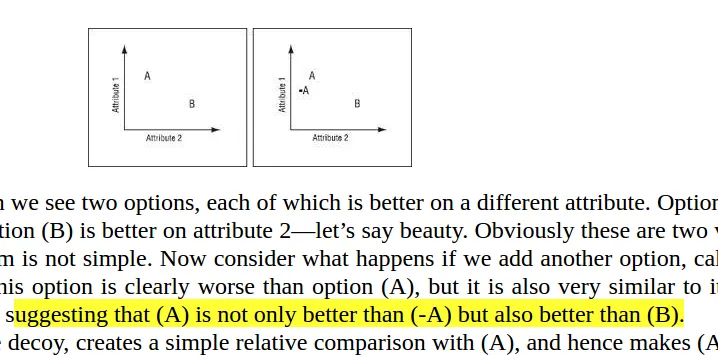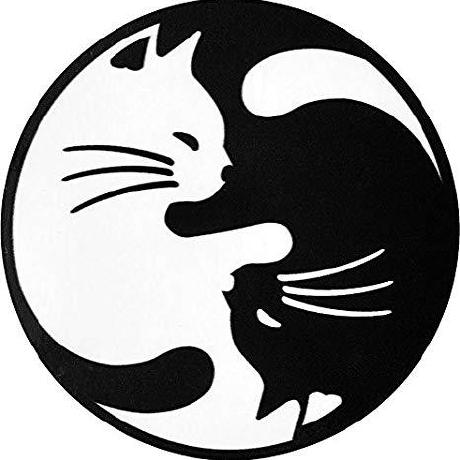Truth and Relativity
April 2020
Humans rarely choose things in absolute terms. We don’t have an internal value meter that tells us how much things are worth. Rather, we focus on the relative advantage of one thing over another, and estimate value accordingly.
Most people don’t know what they want unless they see it in context.
We don’t know what kind of speaker system we like—until we hear a set of speakers that sounds better than the previous one. We don’t even know what we want to do with our lives—until we find a relative or a friend who is doing just what we think we should be doing. Everything is relative, and that’s the point.
One thing Rapp has learned is that high-priced entrées on the menu boost revenue for the restaurant—even if no one buys them. Why? Because even though people generally won’t buy the most expensive dish on the menu, they will order the second most expensive dish. Thus, by creating an expensive dish, a restaurateur can lure customers into ordering the second most expensive choice (which can be cleverly engineered to deliver a higher profit margin).1
We are always looking at the things around us in relation to others.
This holds true not only for physical things, but for experiences such as vacations and educational options, and for ephemeral things as well: emotions, attitudes, and points of view.

We not only tend to compare things with one another but also tend to focus on comparing things that are easily comparable—and avoid comparing things that cannot be compared easily.
“Well, I don’t know much about bread makers, but I do know that if I were to buy one, I’d rather have the smaller one for less money.”
Thinking broadly like this is not easy, because making relative judgments is the natural way we think.
Our
This kind of suggests the pendulum-like push of life when we think or address or apply the inverted option in life. If you want the pendulum to be pushed towards the right,
There are two scenarios,
-
You push it towards right.
The system gets loaded with so much “rightness”, that in order to maintain its balance, (neutrality), its inward nature inherently wants to go towards the left and the forces keep increasing proportionally to move towards left, that’s what we perceive, but it wants to move towards equilibria.
So the insight is, things in nature are already in balance, if you want to obtain something, apply the effort in the inverted/opposite direction, then nature by its inward tendency will apply the force in the direction you wanted from all along.
The effort applied is the same in both scenarios, but in one you have to give up your clinginess to the result and in the other the clinginess pushes you apart from it.
